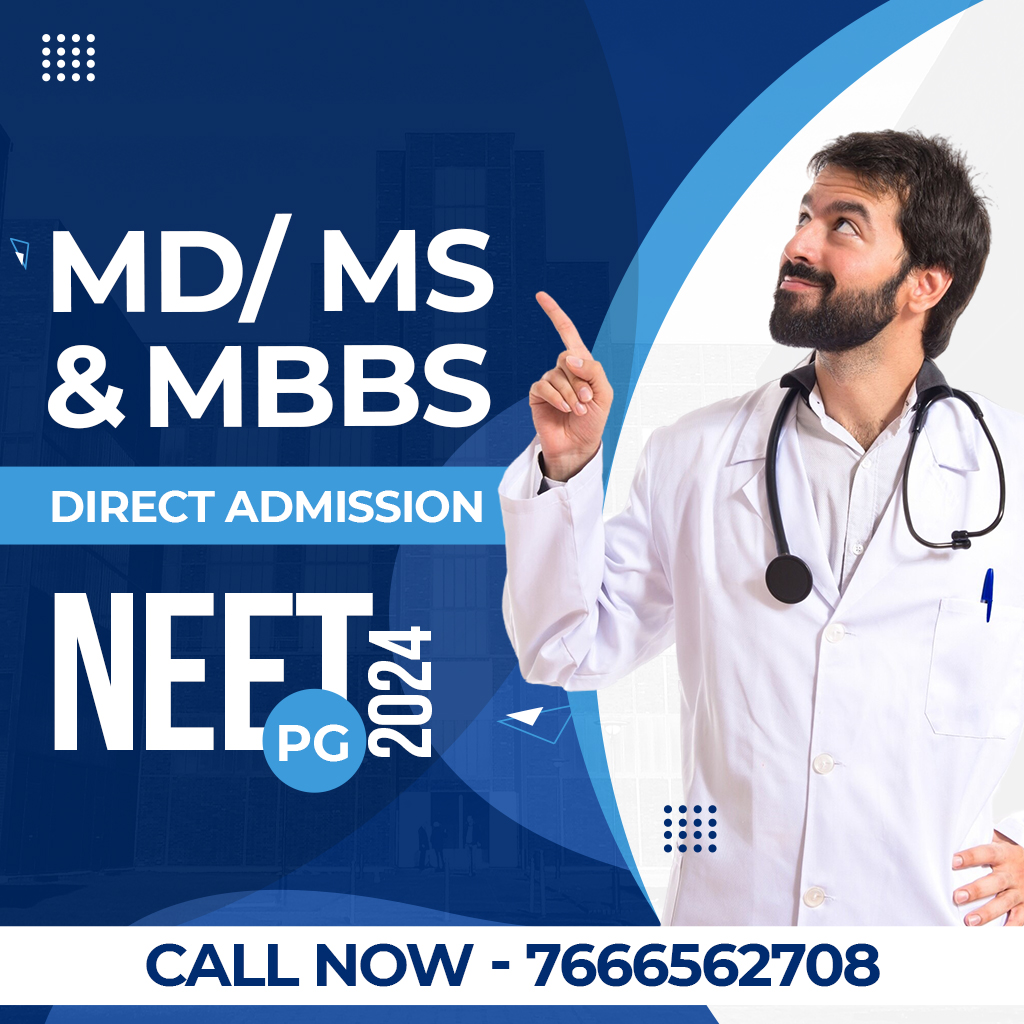The National Eligibility cum Entrance Test (NEET) is a highly competitive exam for aspiring medical professionals in India. Every year, millions of students dream of securing a seat in a prestigious medical college. Unfortunately, due to the limited number of seats available, many students don’t achieve how many marks are required to clear NEET.
This article understands the pressure and disappointment you might be feeling with a lower NEET score. But worry not! This doesn’t define your future. There are numerous fulfilling career paths in and beyond the medical field waiting to be explored. Let’s delve into eight exciting options and explore additional considerations for those who still wish to pursue a medical career path.
Considering Medical Options Outside NEET
Allied Health Sciences
The healthcare sector thrives not just on doctors but also on a dedicated team of allied health professionals. These skilled individuals play a crucial role in diagnosis, treatment, and patient care. Some popular allied health science fields include:
Radiology Technology
Assist doctors in performing X-rays, ultrasounds, CT scans, and MRIs. They ensure proper image quality and patient positioning, contributing to accurate diagnoses. Radiology technologists often work in hospitals, diagnostic centers, and clinics.
Medical Laboratory Technology
Analyze blood, tissue, and other samples to diagnose diseases. They play a vital role in identifying pathogens, blood abnormalities, and other factors that can help doctors determine the cause of illness. Medical laboratory technicians work in hospitals, research labs, and diagnostic centers.
Physiotherapy
Help patients regain mobility and manage pain through physical exercises and techniques. Physiotherapists work with patients recovering from injuries, surgeries, and chronic conditions. They also help individuals manage pain associated with arthritis, neurological disorders, and other conditions. Physiotherapists can work in hospitals, rehabilitation centers, sports facilities, and private clinics.
These programs typically have lower entrance requirements compared to MBBS and offer good career prospects. They provide a chance to contribute directly to patient care and witness the positive impact of your work.
Paramedical Courses
Paramedics are the backbone of emergency medical services. They provide crucial care to patients during emergencies before they reach a hospital. They assess patients’ conditions, administer life-saving interventions like CPR, and stabilize them for transport to a medical facility. Paramedics often work in ambulances, at accident sites, and during medical emergencies.
Paramedic programs are shorter in duration and have less stringent entrance requirements compared to MBBS. This makes them a good option for those who want to enter the healthcare field quickly and make a difference in critical situations.
Pharmaceutical Sciences
The pharmaceutical industry plays a vital role in developing and delivering life-saving medications. Careers in this field involve:
Drug Development
Research and develop new drugs for various diseases. Scientists in this field identify potential drug targets, conduct laboratory experiments, and test the safety and efficacy of new drugs in clinical trials.
Pharmaceutical Research
Conduct research on the safety and efficacy of medications. Researchers in this field may focus on drug interactions, side effects, and long-term effects of medications on patients.
Pharmacy
Dispense medications to patients and provide them with information on their use. Pharmacists ensure patients understand the proper dosage, potential side effects, and interactions with other medications. They can work in pharmacies, hospitals, and clinics.
Pharmacy and pharmaceutical science programs offer a good balance between science and business, opening doors to various career paths. You can contribute to the development of life-saving medications, ensure their safe and effective use, or even manage a pharmacy.
Other Healthcare Degrees
The healthcare sector is vast, with opportunities beyond traditional medical fields. Consider exploring:
Biotechnology
Apply biological principles to develop new technologies in healthcare, agriculture, and other industries. Biotechnologists may work on developing new drugs, vaccines, gene therapies, or diagnostic tools.
Veterinary Science
Care for the health and well-being of animals, playing a crucial role in public health too. Veterinarians diagnose and treat animal diseases, perform surgeries, and promote animal welfare. They also play a role in preventing the spread of zoonotic diseases – diseases transmissible from animals to humans.
Agricultural Science
Contribute to food safety and security, which indirectly impacts public health. Agricultural scientists work on developing new crop varieties, improving crop yields, and ensuring the safety of our food supply.
Research and Academia
If your passion lies in scientific discovery, consider pursuing research degrees in biology, chemistry, physics, or other fields related to healthcare. You can contribute to scientific advancements by:
- Conducting research in universities, government research labs, or private companies.
- Publishing your findings in scientific journals.
- Teaching and mentoring future generations of scientists.
Research careers allow you to delve deeper into specific scientific areas, pushing the boundaries of knowledge and potentially impacting healthcare practices in the long run.
Science Communication
Science plays a crucial role in our lives, but it can sometimes feel inaccessible to the general public. Science communication bridges this gap by translating complex scientific concepts into easy-to-understand language. Here are some ways you can contribute:
Science Writing
Write articles, blog posts, or other content that explains scientific discoveries and their implications for the public.
Science Journalism
Report on scientific news and developments for newspapers, magazines, or online publications.
Social Media Content Creation
Use social media platforms to explain scientific concepts in an engaging and informative way.
Science communication careers allow you to use your science background to bridge the gap between scientists and the public. You can help people understand the latest scientific discoveries and make informed decisions about their health and well-being.
Public Health
Public health professionals work to prevent diseases, promote healthy behaviors, and protect the population’s overall health. This field offers a chance to contribute to a healthier society through:
- Developing and implementing public health programs. This might involve promoting vaccination, educating people about healthy lifestyles, or conducting disease surveillance.
- Working with communities. Public health professionals often work with local communities to identify and address their specific health needs.
- Developing public health policies. They can advocate for policies that promote healthy behaviors and improve access to healthcare.
Public health careers allow you to make a significant impact on the lives of many people. You can work to prevent disease outbreaks, educate communities about healthy practices, and advocate for policies that improve public health outcomes.
Explore Beyond Science
Don’t feel restricted by your science background. There are countless fulfilling careers outside the scientific realm. Here are some examples:
- Engineering: Apply scientific principles to design and develop new technologies that can be used in various fields, including healthcare.
- Management: Pursue a career in healthcare administration, managing hospitals, clinics, or other healthcare organizations.
- Arts and Humanities: Use your creativity and communication skills to write, create art, or teach in fields unrelated to science.
This list is just a starting point. There are numerous exciting career paths waiting to be explored. Consider your interests, skills, and values to choose a career that aligns with you.
Direct Admission through NRI and Management Quota
While NEET is the primary entrance exam for medical colleges in India, there are alternative pathways for those who didn’t achieve the desired score (low score in neet direct md ms admission):
- NRI Quota: Some medical colleges reserve seats for Non-Resident Indians (NRIs) and Persons of Indian Origin (PIOs). These seats often have higher fees and stricter eligibility criteria.
- Management Quota: A limited number of seats in private medical colleges are allocated under the management quota. Admission to these seats is based on factors other than NEET scores, but the fees can be significantly higher.
Direct Admission in MBBS, MD/MS through FindMyAdmission
If you are interested in exploring direct admission opportunities through the NRI or management quota, platforms like FindMyAdmission can be a helpful resource. They assist students with the application process and connect them with colleges that have these seats available.
A low NEET score doesn’t define your future. There are numerous fulfilling career paths in and beyond the medical field. Explore your options, consider your interests and skills, and don’t be afraid to venture outside your comfort zone. Remember, with dedication and hard work, you can achieve success in any field you choose.



